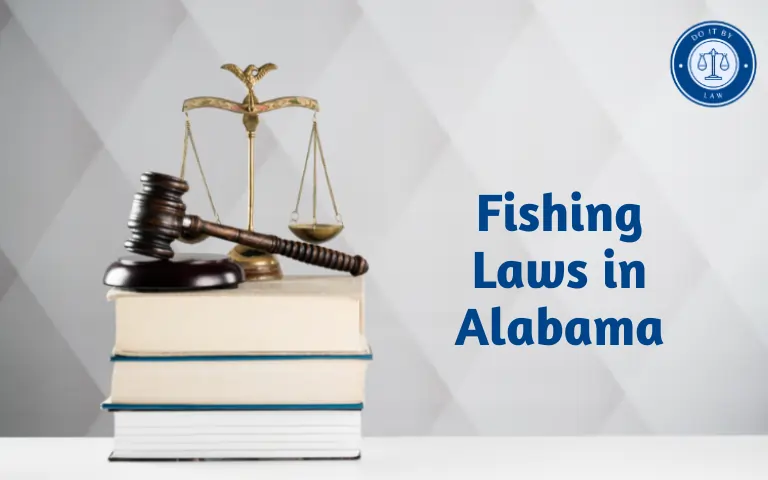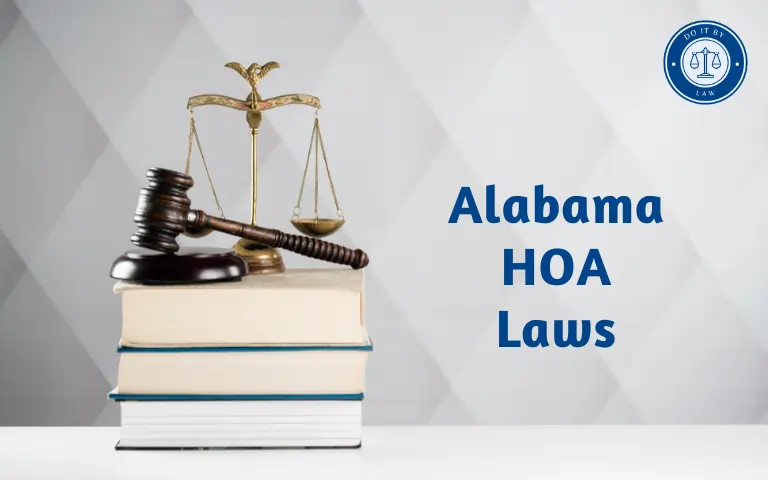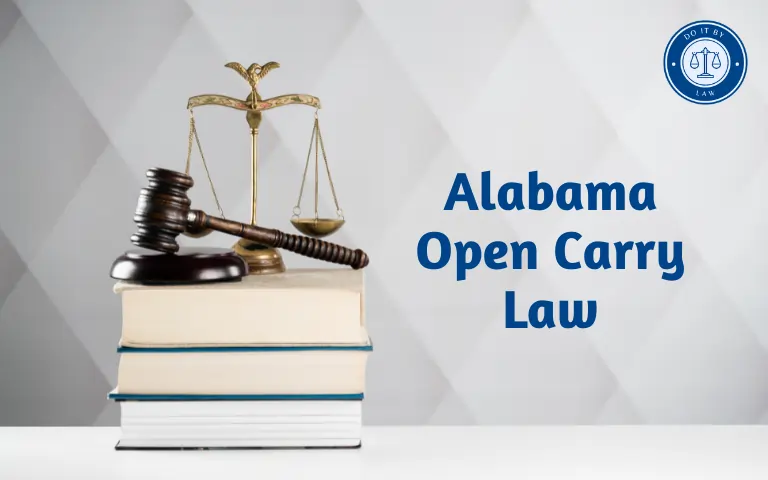Fishing Laws in Alabama: What do you need to know
Fishing is a popular pastime in Alabama, with abundant freshwater lakes, rivers, and saltwater along the Gulf of Mexico. However, all anglers need to follow Alabama’s fishing regulations and licensing requirements to avoid penalties. This guide summarizes key information on Fishing Laws in Alabama, licenses, limits, and more as of November 2023.
When Were Fishing Laws in Alabama Enacted and Why Do They Exist?
Alabama States first enacted fishing laws in the early 20th century to protect fish populations and regulate recreational and commercial fishing activity. Over time, various laws and regulations have been added and updated to:
- Set seasons, size limits, and possession limits to prevent overfishing.
- Require licenses and permits to fish, helping fund conservation efforts.
- Restrict certain areas, methods, or equipment to reduce environmental impact.
- Manage commercial fishing and shellfish harvesting.
- Comply with federal fisheries laws and interstate compacts.
These laws aim to ensure healthy fish stocks and aquatic habitats while enabling sustainable recreational and commercial fishing opportunities.
Who Do Fishing Laws in Alabama Apply To?
Alabama’s fishing regulations and license requirements apply to most people fishing the state’s public fresh or salt waters, with a few exceptions:
- Residents under age 16: No license is required when fishing with a licensed adult resident.
- Disabled Alabama residents: Free lifetime fishing license available.
- Active military: Can fish for free when on leave with a copy of orders.
- Lifetime license holders: Covered under the previous lifetime license system.
- Private pond owners and guests: Don’t need a license when fishing a private pond.
Non-residents, including visitors, require appropriate licenses to fish in Alabama.
Key Provisions, Requirements, and Restrictions
Alabama regulates numerous aspects of recreational and commercial fishing activity, including but not limited to:
- Licenses: Most anglers need a valid annual or temporary Alabama fishing license, with higher fees for non-residents. Saltwater licenses, commercial licenses, and some other specialty permits may also be required.
- Seasons: Species like trout and some black bass have closed seasons during spawning periods.
- Creel/Possession Limits: Strict daily take and possession quantity limits per person on popular game fish species.
- Size Limits: Minimum size restrictions protect juveniles and breeding stock.
- Legal Gear and Methods: Pole/rod-and-reel, jug lines, bow fishing, cast nets, and minnow seines are permitted under regulations. Some other methods are prohibited.
- Area Closures: Certain areas may be temporarily or permanently closed to fishing for resource protection.
- Boating Access: Lake- or river-specific regulations on vessel use. May need boat registration/titling, safety equipment, etc.
- Commercial Fishing: Special regulations on commercial fisheries, including licenses, catch reporting, and more. Recreational sales are prohibited.
- Invasive Species: Restrictions aim to prevent the introduction/spread of exotic species.
- Protection of Species: Extra rules protect threatened/endangered fish.
- Always check current regulations as they can change annually.
What Are the Penalties for Violating Fishing Laws in Alabama?
Those violating Alabama’s fishing statutes and regulations may face:
- Fines: Can range from around $25 up to $500 in some cases, depending on violation type.
- Jail Time: Up to 3 months imprisonment possible for some intentional or serious offenses.
- License Suspension/Revocation: May lose license/fishing privileges for 1+ years.
- Seizure/Forfeiture: Illegally taken fish, gear, vessels, etc. can be seized.
- Civil Damages: May have to repay up to 3 times the market value of illegally taken resources.
Fines typically increase with subsequent repeat offenses. Prosecution happens through Alabama’s district court system.
Recent Changes and Proposed Updates to Alabama Fishing Laws
Alabama periodically updates its fishing regulations, adapting to changing fishery conditions.
Recent changes for 2023 include:
- Increased penalties for violating saltwater license requirements.
- New species added and some stream/river regulation tweaks.
- Adjustments to size/creel limits for spotted/Alabama bass in various lakes.
Proposed changes for 2024:
- Extending trout season in certain streams.
- Relaxing restrictions on snagging paddlefish.
- Tightening commercial menhaden harvest reporting rules.
Always check for the newest regulations before fishing each season. Sign up for free email updates from the Alabama Division of Wildlife and Freshwater Fisheries.
Controversies, Debates, and Challenges Around Alabama Fishing Laws
As with other states, Alabama deals with various fishing-related controversies and issues, such as:
- Access: Battles between public access advocates and lakeshore property owners over shoreline fishing rights.
- Impact of Regulations: Disagreements over whether certain limits or gear restrictions are necessary.
- Stocking: Debate on trout stocking use of public funds.
- Commercial Fisheries Conflict: Recreational vs. commercial allocation disputes over salt species like redfish and speckled trout.
- Enforcement Funding: Budget cuts impact the ability to enforce regulations, allowing more violations.
Balancing conservation needs and diverse stakeholder priorities makes managing fisheries complicated. Public input helps shape Alabama’s evolving fishing policies.
alabama fishing limits
Fishing in Alabama teems with excitement, offering diverse freshwater and saltwater species across rivers, lakes, and the Gulf Coast. But before casting your line, familiarizing yourself with fishing limits is crucial for a responsible and rewarding experience. Here’s a quick overview:
Freshwater Fishing Limits:
- Size Limits: Minimum size requirements exist for various species like bass (14-15 inches), crappie (9 inches), and catfish (12-15 inches). Check specific regulations for targeted species.
- Creel Limits: Daily limits restrict the number of fish you can keep. For example, Largemouth Bass has a 5 per day limit, while Crappie allows 30. Consult regulations for specific limits.
- Seasons: Some species have closed seasons for spawning protection. For instance, striped bass fishing in certain waters is prohibited during spring months.
Saltwater Fishing Limits:
- Size Limits: Minimum sizes apply to popular catches like red snapper (16 inches), spotted seatrout (15 inches), and sheepshead (12 inches).
- Bag Limits: Similar to freshwater, daily bag limits restrict the number you can possess. Red drum, for example, has a 2 fish limit with specific slot size restrictions.
- Species-Specific Regulations: Certain species like tarpon require special permits and tags. Familiarize yourself with regulations for targeted saltwater fish.
alabama commercial fishing license
Craving the thrill of Alabama’s bounty? Before nets hit water, secure your essential Alabama commercial fishing license. It’s your passport to the state’s vibrant reefs and rivers, unlocking sustainable harvests and fueling your business. Dive in, dive deep, but license first!
Types of Alabama Commercial Fishing Licenses:
- Resident Commercial Saltwater Fishing License: This license is required for any resident of Alabama who fishes commercially in the saltwater waters of the state. The cost of the license is $121.00.
[Image of Resident Commercial Saltwater Fishing License Alabama] - Non-Resident Commercial Saltwater Fishing License: This license is required for any non-resident of Alabama who fishes commercially in the saltwater waters of the state. The cost of the license is $361.00.
- Resident Retail Freshwater Fishing License: This license is required for any resident of Alabama who sells freshwater fish at retail. The cost of the license is $241.00.
- Non-Resident Retail Freshwater Fishing License: This license is required for any non-resident of Alabama who sells freshwater fish at retail. The cost of the license is $301.00.
- Resident Wholesale Freshwater Fishing License: This license is required for any resident of Alabama who sells freshwater fish at wholesale. The cost of the license is $301.00.
- Non-Resident Wholesale Freshwater Fishing License: This license is required for any non-resident of Alabama who sells freshwater fish at wholesale. The cost of the license is $301.00.
How to Apply for an Alabama Commercial Fishing License:
You can apply for an Alabama commercial fishing license online at the Alabama Department of Conservation and Natural Resources website. You can also apply in person at any probate court in the state.
Additional Requirements for Alabama Commercial Fishing Licenses:
- In addition to the required license, all commercial fishermen in Alabama must also have a federal fishing permit.
- Commercial fishermen must also comply with all state and federal fishing regulations.
alabama fishing regulations
Alabama’s waterways teem with bass, crappie, catfish, and more, beckoning anglers of all stripes. But before casting your line, it’s crucial to understand the state’s fishing regulations. These rules ensure sustainable fish populations and a healthy aquatic ecosystem for generations to come. So, let’s dive into the essential regulations you need to know for a smooth and legal fishing adventure in Alabama!
Resident vs. Non-Resident Licenses:
- Residents: Alabama residents require a valid state fishing license, available online or at any license dealer. Different licenses cater to specific needs (freshwater, saltwater, combination).
- Non-Residents: Non-residents also need a state fishing license, with options for short-term (daily, 3-day, 7-day) or annual licenses.
Size Limits and Bag Limits:
- Each fish species has specific size limits (minimum length you can keep) and bag limits (maximum number you can possess). These vary depending on the species and waterbody.
- Pro Tip: Refer to the Alabama Department of Conservation and Natural Resources (ADCNR) website for detailed size and bag limit regulations for each species.
Gear Restrictions:
- Certain fishing gear might be prohibited in specific waters or during designated seasons. For example, trotlines are illegal in some areas, and bass tournaments often have specific lure restrictions.
- Remember: Always check the ADCNR regulations for the waterbody you’ll be fishing in.
Species-Specific Regulations:
- Some species have unique regulations beyond size and bag limits. For instance, catching trophy largemouth bass in certain waters requires special permits.
- Stay Informed: Familiarize yourself with any specific regulations for the fish species you target.
Additional Considerations:
- Fishing seasons: Certain species have closed seasons when fishing is prohibited.
- Protected areas: Some areas are designated as fish sanctuaries or no-fishing zones.
- Boat registration and safety: If using a boat, ensure it’s properly registered and equipped with required safety gear.
Remember, responsible fishing means following the regulations. Not only does it protect fish populations, but it also ensures a fair and enjoyable experience for all anglers. So, cast responsibly, respect the rules, and let’s keep Alabama’s waters teeming with life for generations to come!
alabama freshwater commercial fishing license
Embark on a lucrative journey through Alabama’s freshwater realms with the appropriate licensing in hand. From the catfish-laden depths of the Tennessee River to the bass-thriving coves of Lake Guntersville, a commercial fishing license unlocks a world of aquatic bounty.
So, cast your worries aside, secure your permit, and dive into the vibrant tapestry of Alabama’s freshwater fisheries!
Types of Alabama Freshwater Commercial Fishing Licenses:
- Resident Retail Freshwater Fishing License: This license is required for any resident of Alabama who sells freshwater fish at retail. The cost of the license is $241.00.
- Non-Resident Retail Freshwater Fishing License: This license is required for any non-resident of Alabama who sells freshwater fish at retail. The cost of the license is $301.00.
[Image of Non-Resident Retail Freshwater Fishing License Alabama] - Resident Wholesale Freshwater Fishing License: This license is required for any resident of Alabama who sells freshwater fish at wholesale. The cost of the license is $301.00.
- Non-Resident Wholesale Freshwater Fishing License: This license is required for any non-resident of Alabama who sells freshwater fish at wholesale. The cost of the license is $301.00.
How to Apply for an Alabama Freshwater Commercial Fishing License:
You can apply for an Alabama freshwater commercial fishing license online at the Alabama Department of Conservation and Natural Resources website. You can also apply in person at any probate court in the state.
Additional Requirements for Alabama Freshwater Commercial Fishing Licenses:
- In addition to the required license, all commercial fishermen in Alabama must also have a federal fishing permit.
- Commercial fishermen must also comply with all state and federal fishing regulations.
alabama saltwater fishing regulations
Alabama’s shimmering saltwater teems with vibrant life, waiting to be discovered by avid anglers. But before casting your line, ensure a smooth reel-in with knowledge of the state’s saltwater fishing regulations.
These guidelines safeguard precious marine ecosystems while ensuring sustainable harvests for generations to come. Dive into the details, navigate responsibly, and hook into the thrill of Alabama’s saltwater bounty!
Here’s a quick overview of key regulations:
- Licenses: Obtain the appropriate saltwater fishing license, whether resident or non-resident.
- Species-specific regulations: Bag limits, size restrictions, and closed seasons vary for different species, like redfish, speckled trout, and grouper. Check the Alabama Department of Conservation and Natural Resources (ADCNR) website for specifics.
- Gear restrictions: Mesh size limitations for nets and seines, hook restrictions, and ممنوع on spear fishing in certain areas apply.
- Protected species: Be mindful of protected species like sturgeon, sea turtles, and certain sharks.
- Seasonal considerations: Respect seasonal closures and spawning periods for specific species.
Remember, these are just the highlights. Always consult the ADCNR’s official saltwater fishing regulations for the complete picture and ensure a responsible, rewarding Alabama saltwater fishing adventure. Tight lines!
Key Takeaways on Fishing Laws in Alabama
In summary, key points for all anglers to know include:
- A valid fishing license is required for most freshwater and saltwater fishing. Additional permits are needed for some activities.
- Seasons, daily limits, size restrictions, and gear regulations help manage fish stocks. Know them before fishing a location.
- Penalties for violations can be severe. Unknowingly breaking unfamiliar regulations is no legal defense.
- Alabama tweaks fishing laws annually. Check for regulation changes before each season.
- Input from responsible anglers helps fisheries managers balance priorities.
Following Alabama’s fishing statutes enables great fishing for this and future generations. Be a responsible steward and learn the regulations for the areas you target.
Frequently Asked Questions on Fishing Laws in Alabama
References and Links to Alabama Fishing Laws
For full official details on all Alabama fishing regulations, license info, etc., please reference:







